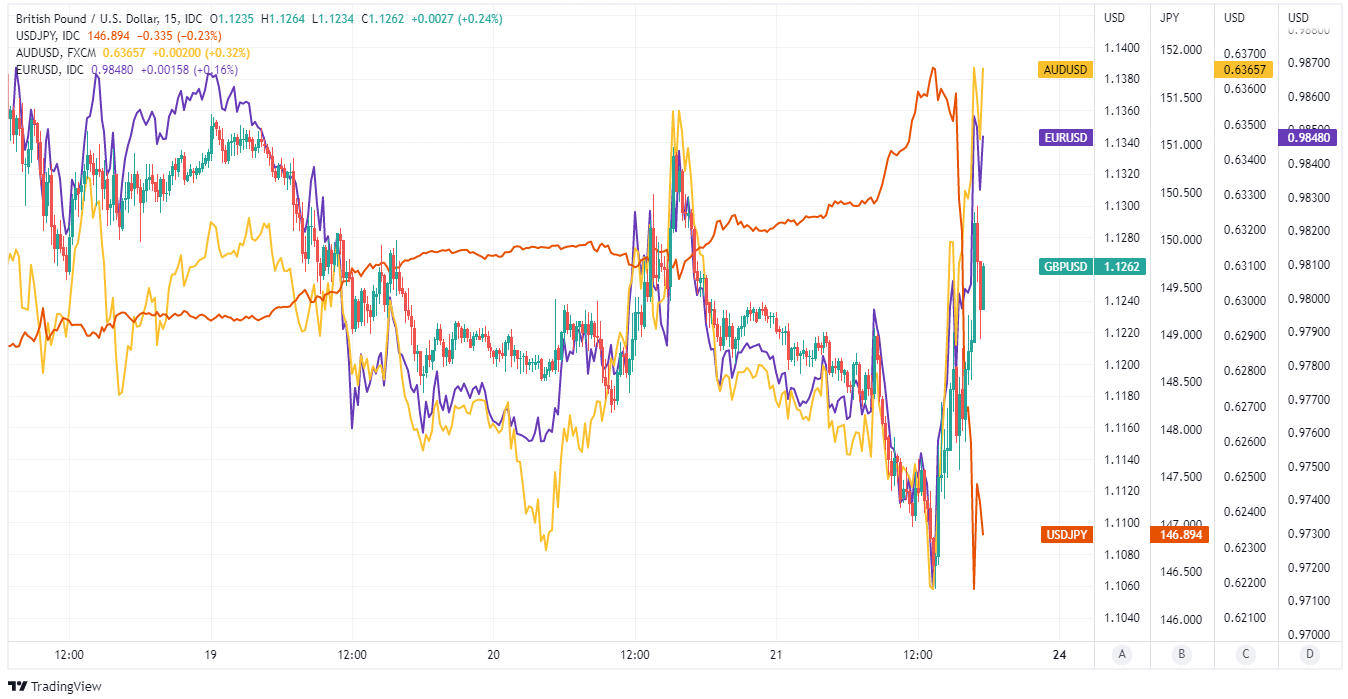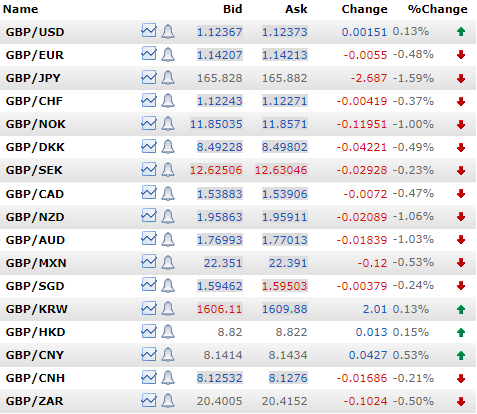Pound Rallies on Spectacular Yen Surge amid Reports of Japanese Intervention
- Written by: James Skinner
"Japan's government and central bank intervened in the currency market early Saturday to support a falling yen, sources told Nikkei."
Above: Bank of Japan. Image © Leonid Andronov, Adobe Stock
The Pound to Dollar exchange rate surged into the London close on Friday amid a spectacular rally from the Japanese Yen that appeared to drive a market-wide slump in Dollar exchange rates and was followed by reports of direct intervention from the government in Tokyo and Bank of Japan (BoJ).
Pound Sterling had been wallowing in the red but rallied notably against the Dollar late on Friday as a crushing slide in the USD/JPY exchange rate lifted the Yen by almost five big figures against the greenback, which had ridden roughshod over all currencies previously.
The Japanese Yen had fallen to its lowest level since 1990 against a broadly stronger U.S. Dollar during the final session of the week as the market overlooked a steady stream of increasingly stern remarks from the finance ministry aimed at discouraging what had become a speculative pile-on.
"Japan's government and central bank intervened in the currency market early Saturday to support a falling yen, sources told Nikkei, triggering a dramatic rebound against the dollar," Nikkei reported late on Friday.
The Japanese government has some of the world's largest currency reserves and Friday's reported intervention would make for a second significant pushback against the market within this last month.
 Above: Pound to Dollar rate shown at 15-minute intervals alongside USD/JPY, EUR/USD and AUD/USD.
Above: Pound to Dollar rate shown at 15-minute intervals alongside USD/JPY, EUR/USD and AUD/USD.
GBP to USD Transfer Savings Calculator
How much are you sending from pounds to dollars?
Your potential USD savings on this GBP transfer:
$1,702
By using specialist providers vs high street banks
Sterling rallied by something like 260 points against the Dollar for bids and offers to be accepted near 1.13, although many other currencies advanced more notably and it's possible that appetite for the greenback was also dampened from remarks from one Federal Reserve (Fed) policymaker.
"The dollar looks set to end the week lower against most major currencies after an article today by the WSJ’s often well-informed Fed reporter, Nick Timiraos, suggesting some FOMC officials favour a (somewhat) less aggressive pace of tightening sent previously-surging interest rate expectations into reverse," says Jonas Goltermann, a senior markets economist at Capital Economics.
"In addition, apparent intervention by the Japanese authorities propped up the yen in late London and early New York trading hours," he adds.
Federal Reserve Bank of San Francisco President Mary Daly was participating in a live-streamed fireside chat with UC Berkeley’s Fisher Center for Real Estate & Urban Economics amid the reported intervention and some of her remarks were of the kind that might have been likely to dampen the Dollar.
Of note, Daly spoke of multiple reasons for why the Federal Reserve might be at risk of "overtightening" its monetary policy by lifting interest rates too far and too fast with some remarks indicative of caution creeping into her policy stance, which is in contrast to the stance of most Fed officials.
Federal Open Market Committee members have until now thrown caution to the wind in their bid to halt the runaway train that has been U.S. inflation over the last year or more, which has seen the Fed set itself on course to lift its benchmark interest rate to 4.5% by year-end and 4.75% early next year.
The San Francisco Fed's Daly did not, however, say anything to actually suggest that a change in U.S. policy is likely to be seen any time soon.
While the Pound benefited from the Yen's rally and the Dollar's decline on Friday it remained an underperformer within the G20 currency complex in a market that has been preoccupied with dire economic figures emerging from the UK and the Prime Ministerial selection process underway in parliament.
Sterling exchange rates were a sea of red throughout much of a Friday session that had gotten underway with the release of retail sales data that told of a well-established downtrend on the high street deepening to pull total sales back below their pre-coronavirus level in September.
Those figures were accompanied by other data suggesting net government borrowing rose by almost one percent of GDP last month and by more than estimates of consensus had suggested was likely, although some economists say the data is not quite as bad as it appears.
Above: Snapshot of interbank reference rates for Sterling as of 17:18 update. Source: Netdania Markets.
Compare Currency Exchange Rates
Find out how much you could save on your international transfer
Estimated saving compared to high street banks:
£2,500.00
Free • No obligation • Takes 2 minutes







